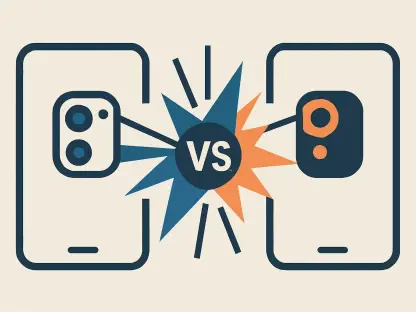Benjamin Daigle here, interviewing Oscar Vail, a leading technology expert with a significant interest in quantum computing, robotics, and open-source projects. Oscar is renowned for staying ahead in the tech industry, and today, we’re diving into the new auto-reboot feature rolling out to Android phones and tablets.
Can you explain the new auto-reboot feature that’s rolling out to Android phones and tablets?
The auto-reboot feature is designed to enhance the security of Android devices by automatically restarting them after three days of inactivity. Once the device restarts, it enters an encrypted state known as ‘Before First Unlock,’ which significantly improves its security measures by disabling biometrics and requiring a passcode.
Why did Google feel it was necessary to implement an auto-reboot feature for Android devices?
Google introduced this feature to tackle instances of unauthorized access, particularly in cases where a device might be lost or stolen. By ensuring the device reboots after three days of inactivity, it minimizes the risk of a thief accessing the data, enhancing the overall security.
How does the auto-reboot feature enhance the security of an Android phone or tablet?
Once a device auto-reboots, it returns to the ‘Before First Unlock’ state. This means the device encrypts its data, and biometrics like fingerprints or facial recognition are disabled until the user enters the passcode. This added layer of security makes it harder for unauthorized users to access sensitive information.
What is the ‘Before First Unlock’ state on Android devices?
The ‘Before First Unlock’ state refers to the condition of an Android device following a restart before the user has entered their passcode. During this state, the device’s data remains encrypted, and access is limited since biometrics are unavailable, necessitating the use of a passcode for entry.
Can you describe how the security of a phone changes when it is in the ‘Before First Unlock’ state?
When in this state, the device’s data is securely encrypted, and the only way to unlock the phone is through the passcode. This significantly reduces the likelihood that a thief or unauthorized person can access your personal information, as they won’t be able to use biometrics to gain entry.
Why was the duration of three days of inactivity chosen for the auto-reboot to trigger?
The decision to set the auto-reboot trigger at three days of inactivity likely stems from the idea that if someone hasn’t accessed their phone for three days, it could mean the device is lost or stolen. This timeframe helps ensure that the feature targets potential unauthorized access scenarios effectively.
How will a user know if the auto-reboot feature is active on their device?
Users might not get explicit notifications about the feature being active, but they can assume it’s working if their device restarts after three days of inactivity. The feature is integrated into Google Play services to function automatically for supported devices.
Are there any visual or auditory indications that the phone has been rebooted automatically by this feature?
While there might not be specific alerts indicating an auto-reboot triggered by this feature, users will notice the standard reboot sequence, such as startup screens and perhaps audible notifications, that generally accompany a device restart.
Is there an option for users to toggle the auto-reboot feature on or off, or is it automatically enabled?
At this moment, it’s unclear whether there will be a manual toggle for users to enable or disable this feature. The rollout and subsequent updates will likely clarify this, but it’s designed to work effortlessly without user intervention.
Will this new security feature be available to all Android devices or only specific models?
Although the auto-reboot feature is expected on most contemporary Android devices, it’s not certain if it will be universally available. Typically, features like this get rolled out to recent models first due to their compatibility with the newest software updates.
Which version of Google Play services includes the auto-reboot feature?
The auto-reboot feature is included in Google Play services version 25.14. This version is gradually being pushed out and should reach most devices shortly, with full functionality becoming apparent after initial rollout adjustments.
How long might it take for the auto-reboot feature to become available on all compatible devices?
It might take a few weeks for the feature to be universally available on all compatible devices as Google completes the rollout and finalizes the necessary adjustments to ensure smooth functionality across different models.
What should users do if they notice their device has rebooted due to this feature?
If users notice their device has rebooted due to inactivity, they should enter their passcode to access the phone. It’s also advisable to ensure their security settings are optimized to benefit fully from the enhanced protection this feature provides.
How will the auto-reboot feature impact the experience of users who might not use their devices frequently but want to keep them accessible?
For infrequent users, the auto-reboot feature might be seen as a minor inconvenience, requiring them to re-enter their passcode. However, this is a small trade-off for the enhanced security and protection of their personal data.
What other security measures does Android have in place to protect users’ data, especially in case of theft?
Android implements various security measures, including regular security patches, device encryption, secure boot processes, and Google Play Protect, which scans apps for harmful behavior. These measures collectively create a robust security ecosystem for users.
Are there any scenarios where the auto-reboot feature might not be beneficial or could cause inconvenience?
The feature might be inconvenient if a device is powered off or the battery is depleted during the reboot process. Additionally, users relying on their phones for specific long-term tasks might find the auto-reboot interfering with their activities.
How do you expect this feature to impact the overall user experience of Android devices?
Though minor inconveniences might arise, the auto-reboot feature is set to significantly bolster security, providing peace of mind for most users. It’s a worthwhile trade-off that ensures better protection against data breaches or unauthorized access.
What feedback has Google received from users about security features like auto-reboot?
While specific feedback on the auto-reboot feature may still be emerging, generally, users appreciate added security measures. Positive reception often revolves around the improvement of data protection and peace of mind in case of loss or theft.
Are there any plans to introduce additional security features in the next updates of Android?
Google consistently works on enhancing Android’s security capabilities. While specifics may not always be disclosed, users can anticipate ongoing updates and new features aimed at fortifying device security and safeguarding data.
What is your forecast for the future of mobile security?
As technology continues to evolve, mobile security will undoubtedly become more sophisticated. We can expect advancements in biometric authentication, enhanced encryption methods, and AI-driven security solutions to safeguard user data more effectively than ever before.









